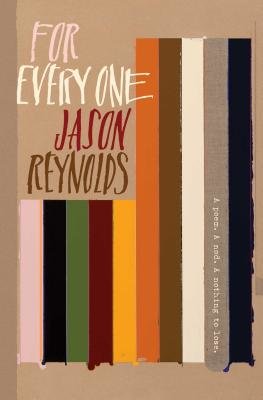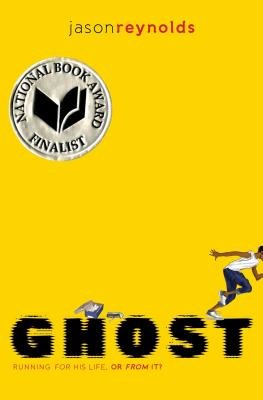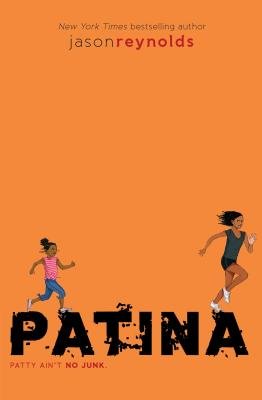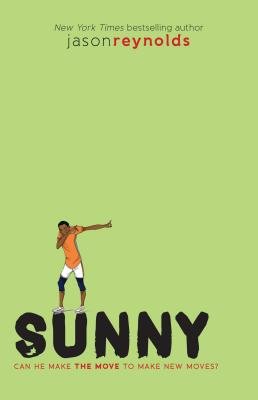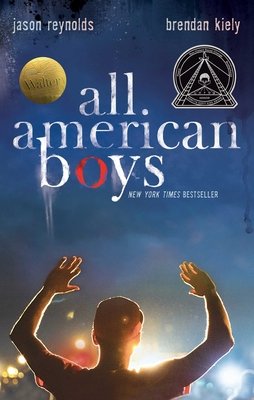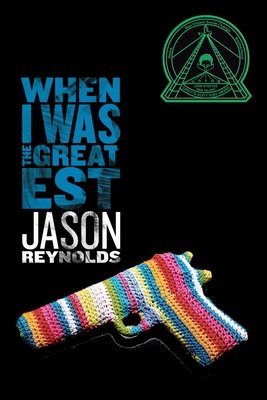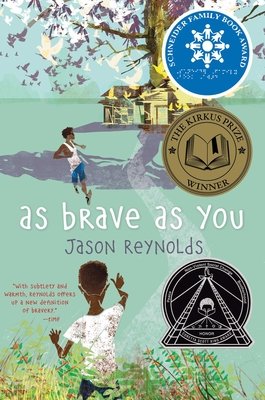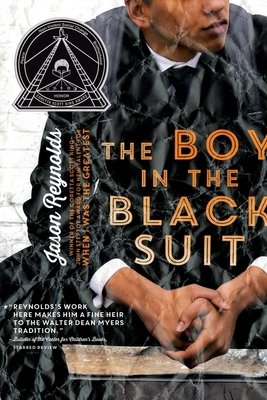Jason Reynolds is the bestselling author of several middle grade books, including When I Was the Greatest, As Brave As You, Ghost (and the subsequent Track series titles, Patina and Sunny). He writes for an audience of kids — mostly boys, he says — who don’t see themselves, their neighborhoods, their friends, or the issues they face in most of today’s popular middle grade fiction. His efforts have earned him numerous awards, a National Book Award nomination, and a devoted fan base. (Wrote one early reviewer, “Let’s be honest — Jason Reynolds could publish his grocery list and I would read it (and probably give it 5 stars).”)
But life didn’t always look like this for Reynolds. When he was first starting out, and facing setbacks, he used his preferred tool of the trade — his love of language — to pen something very personal. The result is For Every One, an inspirational poem almost preternaturally set for this time in modern life.
I spoke to Reynolds about his latest book — and the words and ideas that can inspire us to continue reaching for a dream, despite it all.
For Every One was first performed live, correct?
For Every One was performed live twice, once at the Kennedy Center for the unveiling of the Martin Luther King memorial, the other at a memorial for Walter Dean Myers.
But it’s tricky. That piece, it wasn’t necessarily written to be performed. No, no, no, it was written basically as a letter to myself, to lick my own wounds after feeling like I had failed in the literary industry. I started it when I was about 25. I was with HarperCollins, and my first book didn’t do well. I couldn’t make it happen. You feel despondent. You feel, perhaps, that it’s all for naught, perhaps, I’m not cut out for this.
So, I started writing a letter to myself to say, It’s okay. And furthermore, that I know what it is to fail and I’m okay.
It took three years to write it.
At the time, I was changing, I was evolving. Over the course of those two or three years, it was less about me licking my wounds and more about me fully grasping what it means to have a dream in the first place. There’s value in just having a dream — that is such a powerful thing. Right after that, it turned out, was when When I Was the Greatest came out and my life changed forever.
This was my way of saying, Jason, you’re alright, anyway.
Can you tell me about the performance itself? Was it cathartic?
Performance is usually cathartic. There’s something about doing something public, so others can bear witness to that which is your truth. It’s feeling and catharsis and all of that — that’s what it felt like for me. In the audience were some people I knew, some people I didn’t. My family was there, and it was good to say to them, I don’t know if I’m gonna make it, I don’t know if you’re gonna make it. At this particular juncture, I’m not sure quite sure “making it” matters so much.
There’s a quote from James Baldwin at the beginning of the book, it says the interior life is the real life. The dream. It’s that which is on the inside that is real, not this other stuff.
In your introduction, you also mention meeting these teenagers who didn’t have the same interior life you’re talking about. “They could admit that the dreams were real… but they couldn’t get past how foolish it is to be foolish.”
It scared me. Because I was coming from a place, having been feeling like I had tried and failed, and I had met all these kids, coming from a place of had-not-tried, terrified-to-fail, and terrified-to-even-try. That was painful. You have to jump off the cliff. Like it says in the book, you have to jump anyway. And it’s foolish for us to have this idea that all your dreams will come true. There’s no guarantee. You don’t have as much control as that. What you do have control over is the ability to try.
The second time you performed it you were at the memorial for Walter Dean Myers. Who was he to you?
The reason I get to have a career is the great Walter Dean Myers. It’s safe to say that he changed the face of children’s literature, how we digest and take in what we call children’s literature, especially for children of color, inner city kids, kids of a lower means. For me, he was who gave me permission to be me on the page.
His son is a close friend, Christopher Myers. He called me and asked me to be at the celebration of his life at Symphony Space. Brian Selznick was there, Jacqueline Woodson, it was an incredible time. Five or six of us shared what we thought would honor Walter’s life. For me, because I was this young scrappy kid trying to take my place, and make my place, it was this piece.
Walter got to see some dreams fulfilled, other dreams he didn’t get to see, but he did change the world.
I’m grateful. My recitation to him, it was more of a thank you note.
This is not your typical graduation book — although I see that it’s been marketed that way. I love how you turn the road less traveled trope on its head.
When I think of these kinds of books — like The Alchemist, The Prophet — they’re allegorical, and that’s not my style. I don’t have no answers. I don’t know anything. This is just something to say that there are other people who know how you feel. It’s like a companion — not to tell you what to do, but to be a companion. When you feel like nobody knows what it’s like to want something more than breath, it’s there to say there are other people who also feel like this. When you can’t sleep, you’re restless with doubt, with insecurity…
This is a hug; this is not an answer. That’s what I’d like it to be.
Can you tell me a little bit about writing for a middle grade audience?
Who else is there to write for? As far as I’m concerned, these are the people who are going to inherit our mess, the least we could do is create bodies of work, of literature, to give them something to stand on, to hold onto, something in the name of empathy. It’s the least we could do.
[Being a writer] is less of an occupation, more of a vocation. I don’t teach lessons per se. I’m not here to sermonize. I’m just here to let some young person — or even some older person — know that I know they exist, and that they exist in a nuanced and complex and brilliant and complicated and varied way.
It’s sort of an amazing time for our youth. The kids from Parkland, for example. Could you have imagined them when you first started writing For Every One?
We all in this space — meaning those of sincere and earnest heart for young people — we are always thinking of young people in the future. It’s not that we project who they will be. But if I’m being honest, my job as a person, as a human being… if I’m engaging the way I’m supposed to, loving the way I’m supposed to, it’s not a gamble on who they are going to be. I know.
Did I think about them? No. Am I surprised about what matters to a young person today? No. It makes sense that young people will always stand up. Adults have so much to say about our young people, so much. And they are going to speak for themselves.
And your use of the word Dreamer, again, it’s so resonant right now.
The original title was going to be Letter to a Dreamer.
It’s fascinating to think about the connotation of what a dreamer is today. Dreamers are young people, and when I think of young people, I am always going to be on their side.
There’s a line in the book, “you might be 50 and think it’s too late. Jump anyway.” I’m not yet 50, but I’m closer to 50 than I am to 18. It really spoke to me, and it also made me wonder — who is this book for?
It’s self-evident: It’s for every one.
Dreams, there’s no age limit.
All of us have this thing, we all have it. It may be a secret, but we all have something we desire. It could be, I want to drive and swim, because no one else I know can drive and swim. I want to go to college, because no one else has gone to college. It can be anything. It doesn’t have to be grandiose.
How does For Every One fit in with the rest of your writing?
We’ll just wait and see. I have just as much anxiety about anything that’s new. I’m nervous about it. People have expectations of me and this is not that. But at the same time, it will stand on its own.
If anything, there’s a beauty to the story only because I had written this before everything shifted. I can look back on this, skim through it, read a passage and be reminded of, one, how fortunate I am, and two, how none of the things I’ve accomplished define me. None of the awards, none of the success, none of that. This letter to myself is to say that I’m good because I am, period.
This interview has been edited for length and clarity.
-
Books by Jason Reynolds:
-
For Every One
Preorder from: -
All American Boys
Preorder from:As Brave As You
Preorder from:

